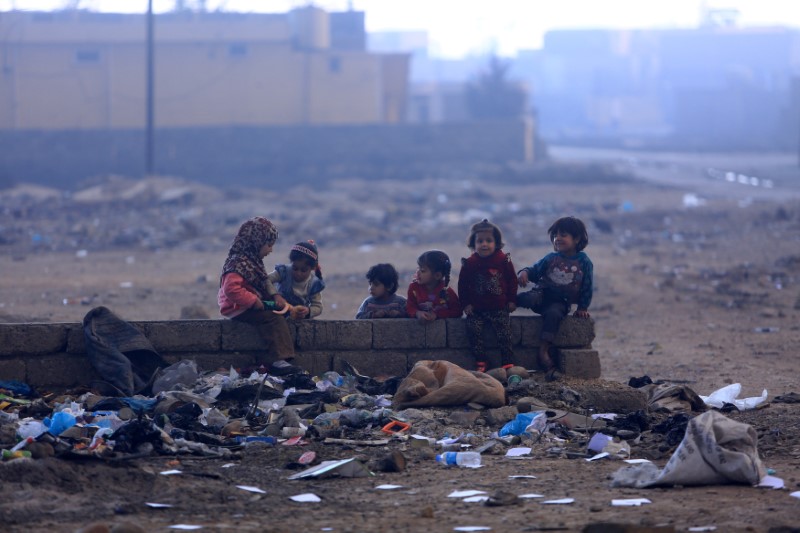
BAGHDAD (Reuters) – The fierce ebb and flow of battle in Mosul’s eastern districts is leaving residents feeling in constant threat, even after army advances in their neighbourhoods, as counter-attacks by Islamic State jihadists often put them straight back on the front line.
Special forces and a tank division fighting to expand their foothold in the east of the city for nearly two weeks have faced determined opposition from the militants who have launched waves of suicide bombers, sniper attacks and ambushes against them.
The army has said it controls or has advanced in nearly a dozen districts in Mosul. But announcements of gains are often followed by reports of renewed fighting in the same areas which have been declared under control.
One resident of al-Qadisiya al-Thaniya district, which the elite Counter Terrorism Service entered on Friday, said the special forces later pulled back and Islamic State fighters returned.
“They came back to us again, and this is what we feared. At night there were fierce clashes and we heard powerful explosions,” she told Reuters.
In some districts, control has changed hands three or four times as the militants, using a tunnel network and exploiting the presence of civilians as cover, have launched night-time attacks and reversed military gains of the previous day.
The CTS special forces spearheading the advance into Mosul are part of a 100,000-strong force of army, security forces, Kurdish peshmerga fighters and mainly Shi’ite “Popular Mobilisation” forces aiming to drive Islamic State from the largest city under their control in Iraq or Syria.
The operation, which enters its fifth week on Monday, is the most complex in Iraq in over a decade and is complicated by the presence of the more than 1 million civilians still living under Islamic State control.
In Intisar, further south on the same eastern flank of the city, the army’s Ninth Armoured Division has been fighting for nearly two weeks without securing the neighbourhood.
“We have not been liberated yet,” a mother of four told Reuters by telephone late on Saturday, describing how a mortar bomb had landed on her house while her family was sheltering under the concrete staircase indoors.
“My husband moved us to a relative’s house not far from our house. We walked hurried by a wall, scared of the indiscriminate shelling,” she said.
In areas which are under the control of the army in Mosul and surrounding towns and villages, tens of thousands of people “lack access to water, food, electricity and basic health services”, the Norwegian Refugee Council said on Sunday.
More than 54,000 people have been displaced so far in the four-week Mosul campaign, and the NRC said ultimately 700,000 people were likely to shelter, food, water or medical support.
Inside the city, still under the control of the ultra-hardline militants, a retired government worker who drove to collect his pension said most markets appeared to be open and traffic grew busier the further he went from the eastern front.
“I found a group of retirees who got to the pension office before me. We were whispering: ‘Maybe this is the last salary we’ll collect under Daesh (Islamic State).”
(Editing by Jane Merriman)
Copyright 2016 Thomson Reuters. Click for Restrictions.


